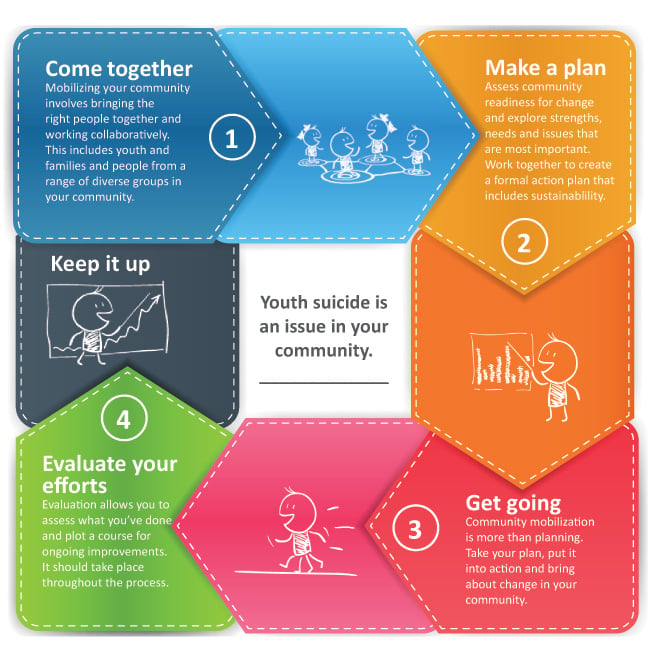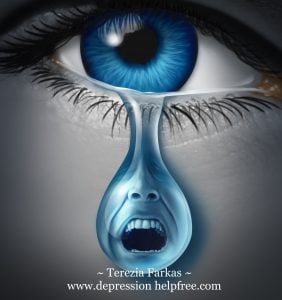Half of life promotion for youth suicides is getting your community involved in helping marginalized youth. Why help marginalized youth?
Being marginalized or discriminated against increases youth suicides. Every person should have an equal opportunity to live a healthy life. But that isn’t always the case.
LGBTQ. First Nations. Rural people. Belonging to one of these groups doesn’t increase a youth’s chances of suicide. But it does create daily social barriers, which is usually fought in survival mode. Being in survival mode takes a mental toll on anyone.
Engaging LGBT youth
Stats show that LGBTQ youth are about two to three times more likely to attempt suicide than other youth. The numbers get higher for trans youth. LGBTQ communities have a long history of being victimized because they didn’t fit in with socially accepted views of sexual orientation. While progress continues to be made, LGBTQ youth continue to face both subtle and overt forms of oppression that put them at higher risk for suicide. Violence, discrimination (e.g. homophobic or transphobic bullying), and family rejection are the top risk factors for poor mental health and suicide among LGBTQ youth.
Despite this, many LGBTQ youth are resilient.
For your community to be a safe and inclusive place for LGBTQ youth, you must embrace an anti-oppressive practice. That’s the first step in enabling LGBTQ youth to feel free to be themselves, without having to worry about being exposed to negative practices and attitudes. It’s not enough to hold positive or open-minded views of the LGBTQ community. Anti-oppressive practice is when you engage in self-reflection on your own position of power and privilege, challenge your own biases and assumptions, and hold yourself accountable to empowering LGBTQ youth as full partners in your community. It also means using inclusive and respectful language, and asking youth which pronouns they identify with.
Engaging First Nations youth
Each First Nations community has its own heritage, culture, and perspective. This must be respected. History matters when dealing with FN youth because most FN youth are still suffering generational trauma that their parents or grandparents suffered, like the loss of cultural practices and language.
For your community to help FN youth, you must know the reality in which FN youth live. Understanding culture is essential to helping the youth. For example, elders are still in contact with nature. Nature isn’t a recreational place to visit like it is for white people. Nature is part of daily living, of partaking of nature’s healing whenever you step outside your home. Youth aren’t as connected with this concept of nature mostly because they are involved with new tech or busy building careers. But they still see nature through their cultural lens.
Engaging Rural youth
Rural youth face expectations that they will be tough, self-reliant, and resilient. This isn’t always the case. So when rural youth are depressed, they have to hide it or face stigma. Access to lethal means to end one’s life are everywhere on the farm. Too often a suicide is mistaken for a farm accident. There’s fewer mental health services in rural areas. Even if service is available, most youth won’t go because their anonymity isn’t protected in the close knit farming community.
To help engage rural youth, the use of technology can be helpful. Texting or video calls provide the privacy that most youth can’t find with a walk in clinic. Providing transportation that’s free or cheap to go to mental health clinics helps, because while rural youth need to be seen as independent they also lack resources for continuos long trips.
If any community wants a safer, healthier place for youth, they need to engage these groups in conversation. These youth have lived experiences and perspectives that if used properly can benefit the community by reducing youth suicides.
**thanks to Together To Live for the infographic (www.togethertolive.ca)
Places to get help
Kids Help Phone: 1-800-668-6868
Together To Live: www.togethertolive.ca
www.suicidepreventionlifeline.org: 1-800-273-8255



